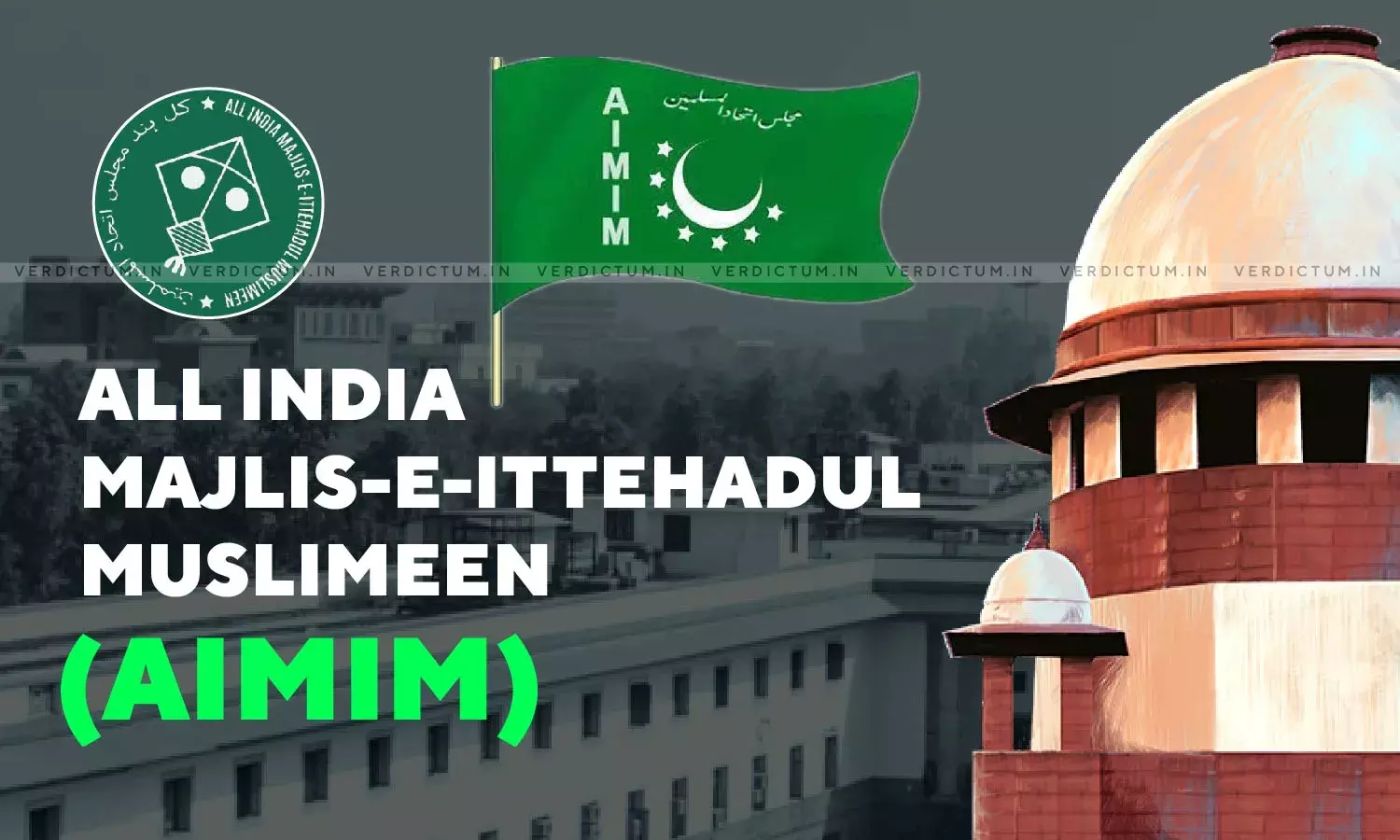If Party's Name Is An Appeal In The Name Of Religion, Candidates With Name Ram Or Shiva Would Be Disqualified: AIMIM Before SC

The All India Majlis Ittehadul Muslimeen (AIMIM) has argued in its Counter Affidavit in the plea seeking a ban on political parties which use names and symbols of religions that if political parties with religious names are to be debarred, even candidates with names like Ram, Shiva or Vishnu would be disqualified.
"...to say that the name alone is an appeal in the name of religion is analogous to the argument that any candidate, with a religious name, is asking for votes from that community and must hence be disbarred, therefore any candidate with the name Ram, Shiva or Vishnu would be disqualified on the basis of the same reasoning", AIMIM says in its affidavit.
AIMIM has further stated that mere mention of the word, ‘Muslimeen’ in its party name, cannot amount to any specific appeal to the electorate on the ground of religion.
“…in the present case, the mere mention of the word, ‘Muslimeen’ in Respondent No. 3’s party name, cannot amount to any specific appeal to the electorate on the ground of religion, ipso facto, cannot be termed as violation of the principles of secularism.”, the Counter affidavit by AIMIM read.
It has further added that the entire petition is nothing more than a hate speech manifesto masquerading as Writ Petition.
“While the entire petition is nothing more than a hate speech manifesto masquerading as Writ Petition, i.e., the language of the pleadings as well as the unverified facts stated therein seem more like an attempt to create a non-existing divide between two communities.”, AIMIM said in the Counter Affidavit.
AIMIM also said that the Petitioner-Syed Waseem Rizvi has approached the Court with a politically motivated petition. It added that the Petitioner appears to be an individual, who courts controversy not for any social cause but for personal gain and attention.
AIMIM has also pointed out that the Petitioner has had multiple FIRs filed against him and has been embroiled in numerous controversies.
AIMIM also stated that AIMIM as a political party has been consistently working for the past 60 years towards its main aims and objectives, and while starting from the level of municipal elections, it now has members in the Parliament of India.
It also stated that since its formation and subsequent registration, AIMIM has been working endlessly for the welfare and protection of all the individuals residing in India.
"The Constitution of Respondent No. 3 makes it amply evident that Respondent No. 3 is not exactly what the Petitioner is trying to portray it to be and on the contrary it is a party which not only believes but has also incorporated principles of secularism and inclusion in its Constitution.", the Counter affidavit filed through Advocate Abishek Jerbaraj read.
The Counter Affidavit further read that the constitution of AIMIM does not mention or instruct its members to seek votes in the name of religion.
AIMIM has also stated that it has been fielding a number of non-Muslims– Dalits, Girijans (Tribals) and OBCs – in the civic, Assembly and parliamentary elections. It added that in the 2014 General Elections, AIMIM had fielded four non-Muslims for Lok Sabha and eight non-Muslims for Assembly seats in Telangana and Andhra Pradesh.
AIMIM has also pointed out that the petitioner has admitted that AIMIM has not violated any provisions of the Representation of People’s Act and that the Petitioner has failed to mention any specific instance where AIMIM has violated the provisions of ROPA, viz., Section 123.
Syed Waseem Rizvi (Jitendra Narayan Singh Tyagi) had approached the Supreme Court seeking to enforce the mandate of Sections 29A, 123(3) and 123(3A) of the Representation of People Act, 1951 which prohibit luring of the voters on the ground of their religion. While issuing notice, the Court had directed the Petitioner to implead such political parties as Respondents.
Cause Title- Syed Waseem Rizwi v. Election Commission of India & Anr

